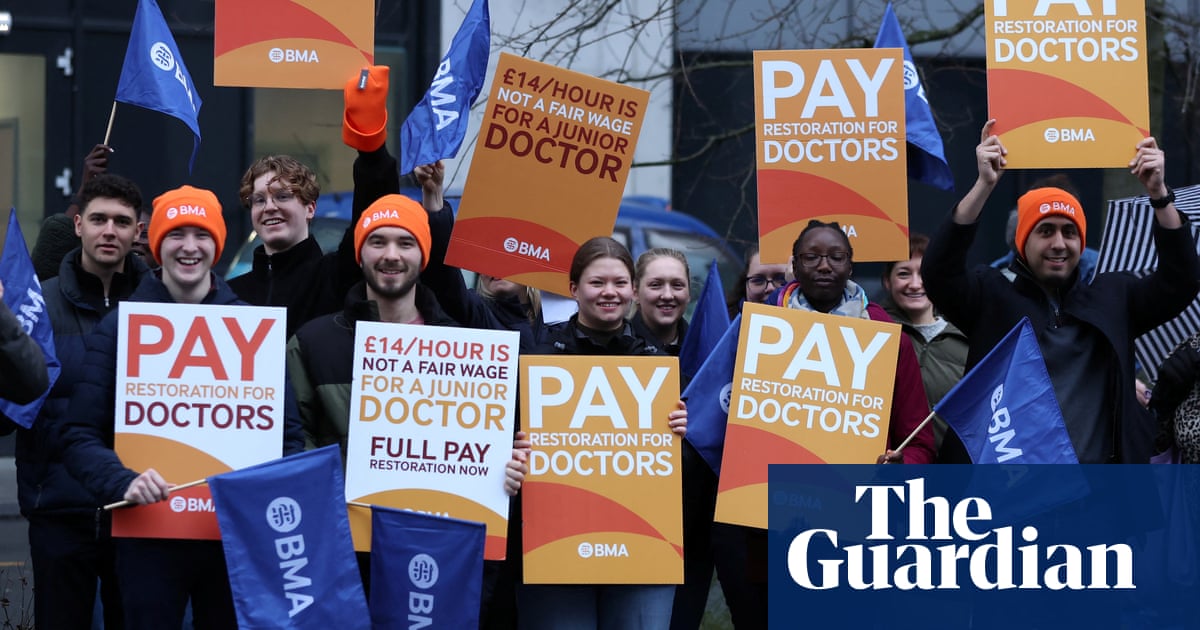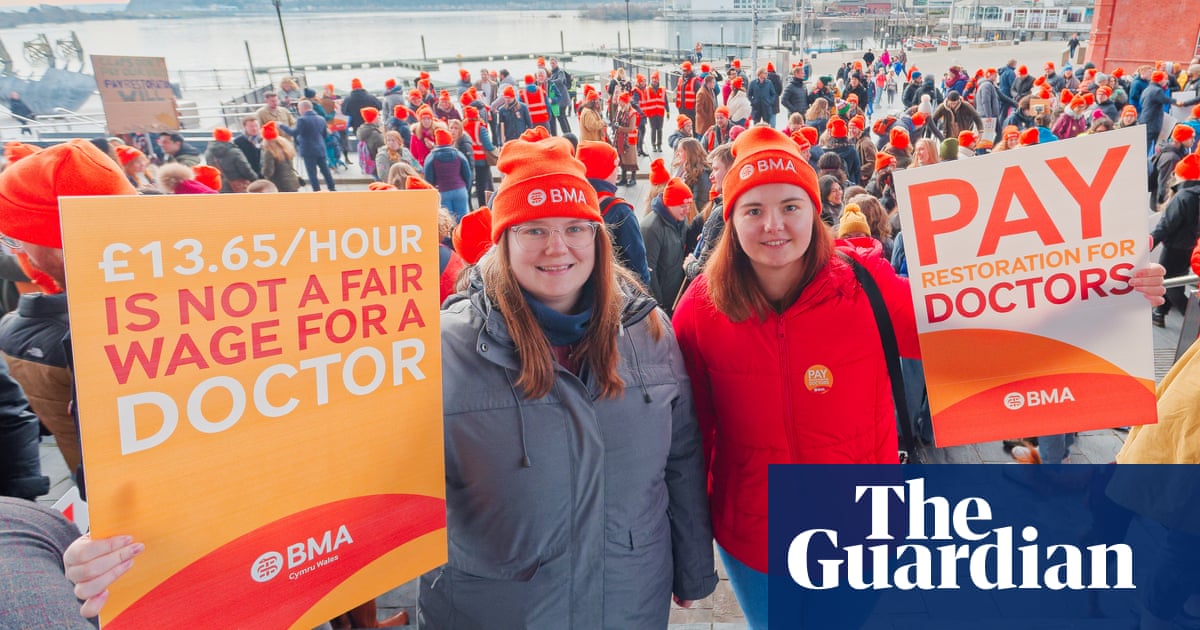
Three-quarters of NHS trusts are not allowing birth partners to support mothers throughout their whole labour, despite being told by the NHS and the prime minister that they must urgently change the rules around visiting, the Guardian can reveal.
According to data collected for 144 trusts in England, Scotland and Wales by an independent doula and analysed by the Guardian, half of the trusts and health boards covered by the research were restricting partners from attending at least two of three key moments: the 12-week scan, the 20-week scan and the duration of labour.
As of Wednesday this week, in 50% of cases women have to go to their first 12-week scan alone, while 40% of women have to attend the 20-week scan – which identifies potential anomalies – without their partner because of continuing coronavirus restrictions.
Just 23% of trusts are allowing a birthing partner to be present at the hospital for the duration of labour, only allowing support in the later “established” phase.
Campaigners argue that as a result, some women are giving birth alone, or finding out they have miscarried or that there is something wrong with their baby without the support of their partner.
“People are really scared,” said Joeli Brearley, the founder of Pregnant Then Screwed. “We understand that hospitals are trying to protect their staff and it’s not easy to make people safe, but this is so important. No one should go through labour or learn they have miscarried on their own, and women are telling us that will never get over the experience.”
In July, Sarah* started to bleed at 13 weeks, a week before her scan and, alone at the hospital, was told she had miscarried. After the next, internal, scan the following day she started bleeding heavily and was in agony for four hours before she had emergency surgery. “I had the overwhelming feeling I was going to die,” she told the Guardian. “I was there on my own, no one had my back […] I’ve had flashbacks and suffered more trauma from not having my partner there than the miscarriage itself.”
Boris Johnson said in parliament last week that no one should give birth alone when pressed by Labour’s deputy leader, Angela Rayner. Then, on 19 September, NHS England and NHS Improvement wrote to the directors of nursing and heads of midwifery stating that NHS guidance released on 8 September meant partners and visitors should now be able to attend maternity units.
It stated: “To those that are still working through the guidance, this must happen now so that partners are able to attend maternity units for appointments and births,” the Independent reported.
A petition started by then-expectant mother Holly Avis calling for partners to be allowed to remain with expectant mothers throughout birth has attracted almost 450,000 signatures. The campaign has gathered pace under the #butnotmaternity hashtag as expectant couples have questioned why six people can gather in a pub, but a partner cannot be with an expectant mother.
Black women are particularly anxious, said Tinuke Awe, the co-founder of FivexMore. A 2018 MBRRACE report highlighted that black women in the UK were five times more likely to die from complications during pregnancy and childbirth than white women. “With the added risk of being more likely to be admitted into hospital with Covid-19 if you are from a black and Asian minority-ethnic background, this is a very worrying and anxiety-filled time for black women and birthing people everywhere,” she said.
Toni*, who is 29 weeks pregnant, said she was very aware of poor outcomes for black women: “I feel let down, disappointed, anxious and actually, a little bit scared.”
Sophie McCartney, a comedian, went through three scans to establish she had miscarried at 11 weeks and had a medically managed miscarriage on her own. She was asked if a student sonographer could sit in on one scan, even though her husband was not allowed to be there. “It was one of the worst experiences I’ve been through as an adult,” said McCartney, who shared her experience on Instagram. “I do understand why measures need to be put in place to protect the vulnerable, but women in these situations are vulnerable, too.”
Jessica Libaert, who goes by the professional name Jess Celestine Doula, collected the data after a request for help from Birth Bliss Academy. “To have a positive birth experience, pregnant people need to feel relaxed and supported,” she said. “Take that away and you see an increased rate of medical intervention, which can lead to negative experiences or even birth trauma and that has consequences for the rest of that family’s life.”
It could also affect a father or partner’s relationship with the child, said Katherine Jones, the co-chief executive of the Fatherhood Institute. “It’s incredibly discriminatory,” she said. “It feels like a reversion to the 1950s, with that sense that everything runs smoothly if the father isn’t there.”
A spokesperson for the Royal College of Midwives said the support of a partner during scans and labour was important but that while maternity teams were doing all they could to maintain access, local coronavirus lockdowns meant some were unable to.
“By limiting some access, maternity teams can continue to deliver good quality, safe care, protecting pregnant women and the midwives and MSWs who care for them,” said the RCM.
An NHS spokesperson said: “Guidance has been absolutely clear throughout the pandemic that an exception on visiting restrictions must be made for birthing partners when a woman is in labour.”
*some names have been changed












